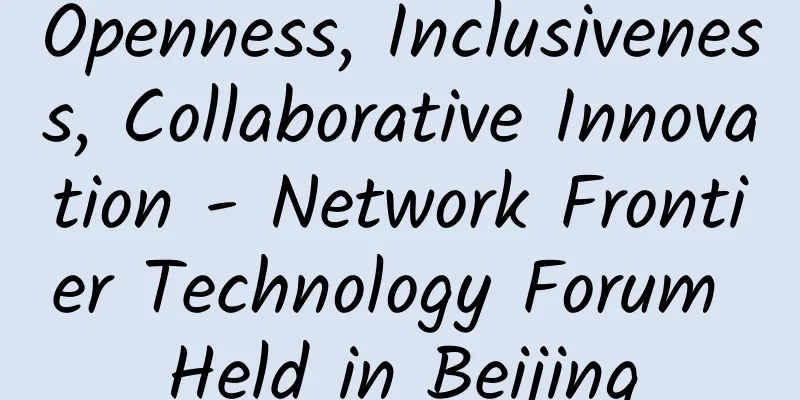Explore the unlimited potential of 5G technology

|
Information technology experts and economists have expressed enthusiasm over the launch of Airtel 5G and 2Africa cable landing stations, saying the integration of new generation internet services and communication facilities into the country’s digital ecosystem will boost economic growth. They believe that the newly launched new generation of Internet services and electronic communication facilities will also serve as a means to achieve the goals outlined in the national agenda. A digital ecosystem is a group of technologies that work together to provide information to people. It is like a network of digital devices that work together to provide information to users. Experts say achieving the milestone will require harnessing the full potential of fifth-generation technologies, but insist that such IT developments require the right infrastructure and processes. Commenting on the new developments in the communications industry, Dr. Hildebrand Shayo, an experienced economist and banker, said that widespread adoption of these technologies in the country’s digital ecosystem will lead to economic growth. With greater connectivity and faster speeds, the transformation has the potential to revolutionize the way we interact with technology, machinery and software. It pointed out that recent studies assessing the impact of 5G technology showed that 5G technology will have a greater impact on the global economy than previous studies, and it is estimated that it will contribute approximately US$13 trillion to global output by 2035. It added: “The manufacturing sector will benefit the most from this revelation as the national economy is expected to rank among the top, driven by the country’s ongoing infrastructure investments.” With a peak data transfer rate of 20Gbps and extremely low latency, 5G networks will be much faster than previous networks and have countless applications in various fields such as manufacturing, healthcare, education, agriculture, logistics and entertainment. Shayo said mobility-based services will quickly enter an elite category of general-purpose technologies, joining industries such as electricity and automobiles, providing the foundation for massive innovation, creating new industries and driving the entire economy. This will happen as 5G transforms mobile devices into a single fabric that connects everyone to everything, rather than just a collection of technologies that connect individuals to information and each other. The impact of 5G on the national economy will be enormous, and with the acceleration of the Internet of Things (IoT), it will bring an additional boost to the Fourth Industrial Revolution. Shayo pointed out that as a fast and reliable real-time data transmission, 5G technology will greatly benefit sensors and control units installed in facilities, machines and logistics chains in various industries. Dr. Meserecordias Lema, a lecturer at the University of Dodoma, disclosed that the introduction of fifth generation technology will improve efficiency in service delivery, citing the examples of taxation and health service delivery. Dr. Lema also singled out increased accountability, especially in public institutions, as everything is identified in real time. He said every new technology has its advantages and disadvantages. It is important that the country's policies and laws keep pace with technological changes. “As the government works to promote investment in new technologies, public servants should not be afraid to embrace this change… Every agency needs to have a core of people who can support these changes.” The new communication technology will bring about major reforms in agriculture, healthcare, education and the national economy. Through this technology, patients can get specialized services, which is also applicable to other fields such as agriculture and education. To realize the full potential of fifth-generation technologies, institutions and all ecosystems should be prepared to support the digital revolution by having the right infrastructure and equipment and achieve the inclusive digital economy that the country aspires for. The task ahead is to ensure that these advances are harnessed to unlock opportunities that will advance our people and our economies. To realize the full potential, experts recommend that training institutions develop appropriate curricula to prepare young people and other groups to take full advantage of this technology. Experts also advocated for investments in better security and for proper accountability systems to bring to justice all those involved in Internet fraud. |
<<: Introduction to SDN Controller
>>: The role of gateways in computer networks
Recommend
Facing the information gap brought by the 5G era
South Korea is expected to launch 5G (fifth-gener...
A brief analysis of the technical difficulty of "number portability"
According to the Ministry of Industry and Informa...
A white-label vendor's perspective: The evolution of minimalist switch NOS
Traditional switch operating systems (NOS) are a ...
Shanghai Pudong issued the country's first "blockchain construction standard" in the government sector
Recently, the Pudong New Area's "Governm...
Megalayer: Hong Kong/Singapore/US VPS annual payment starts from 199 yuan or 24 yuan/month, dedicated server starts from 399 yuan/month
Megalayer is a foreign hosting company establishe...
What is DNS and how does it work?
The Domain Name System (DNS) is one of the founda...
10gbiz 40% off on all VPS hosts, Hong Kong CN2 GIA/Los Angeles CN2 GIA lines available
10gbiz's promotion is still going on, with 40...
Aoyou Hosting Hong Kong CN2 High Defense VPS Simple Test
In December last year, the tribe shared informati...
HostYun Hong Kong Tsuen Wan AMD series VPS simple test
The day before yesterday, we shared the informati...
Data center opening, electrical testers answer all your questions
Data center operators are committed to bringing t...
CERNET and Shengbang Security have reached a strategic cooperation, allowing colleges and universities to experience more efficient and convenient Web security governance SaaS services
[51CTO.com original article] On October 24, CERNE...
IoT and 5G: Transforming Public Transportation Systems
Smart cities collect data from different connecte...
FCC votes to approve new round of 5G auction: once reserved for the US military
The Federal Communications Commission (FCC) voted...
Three years after the license was issued, has 5G commercialization been successful?
It coincides with the third anniversary of China...
Why is the WiFi signal full but the internet speed is still slow?
I believe many of my friends have encountered suc...









